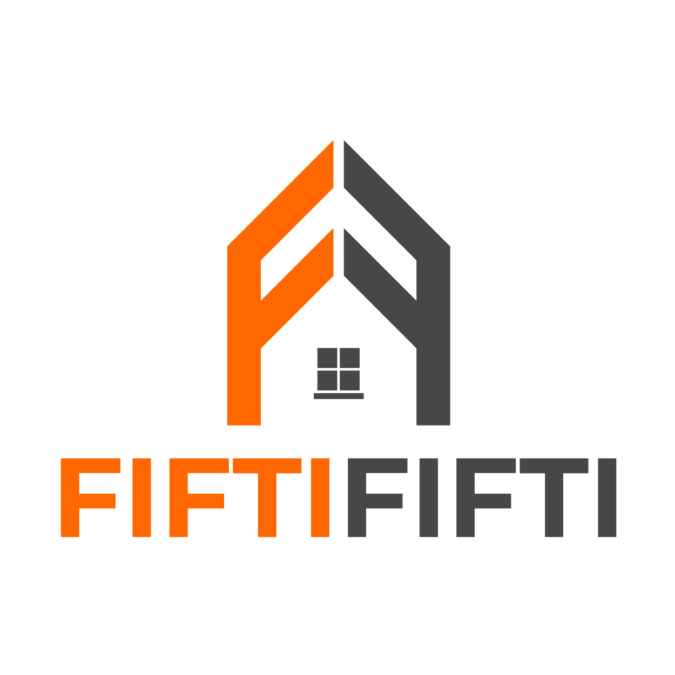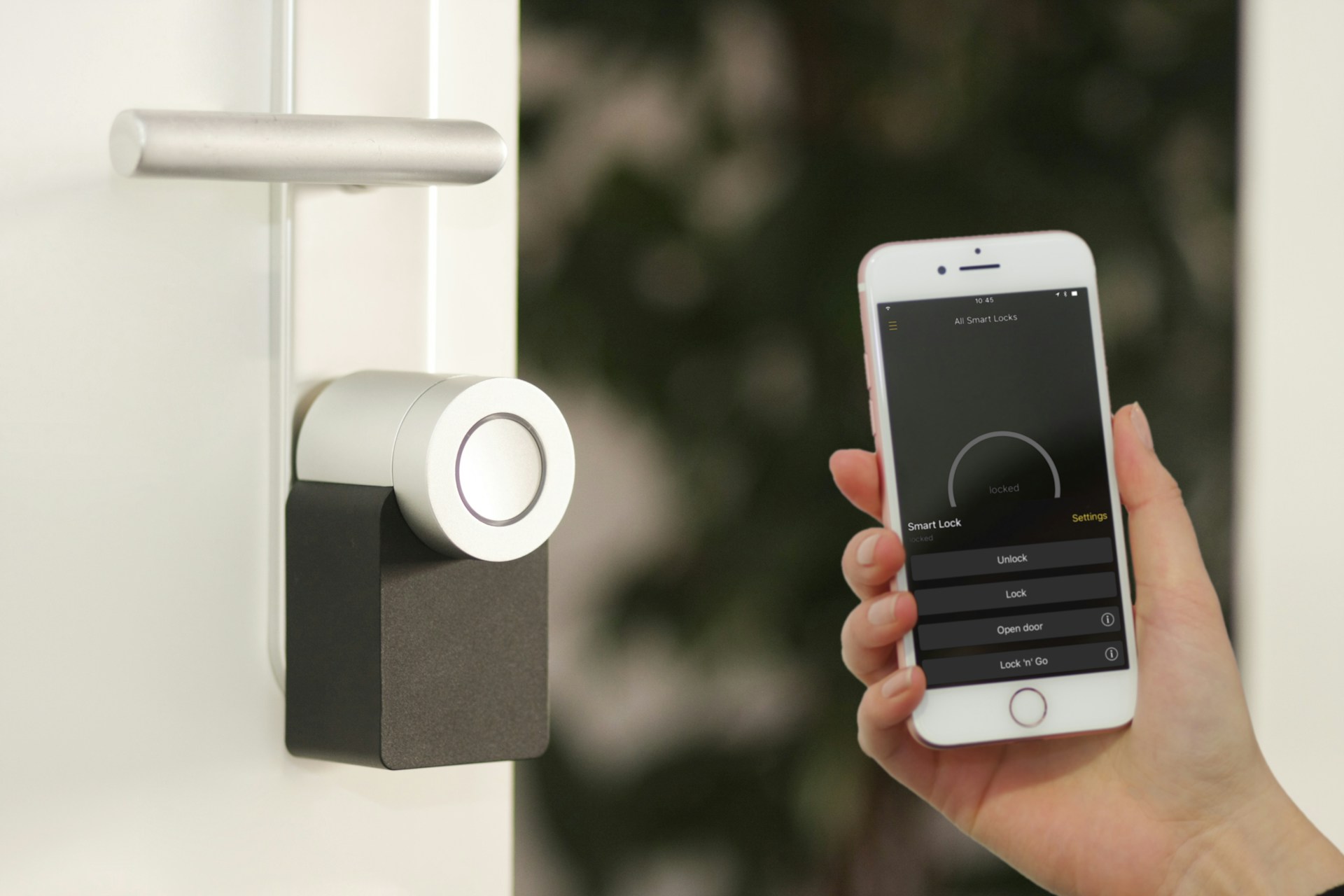Last Updated on January 29, 2025
Smart tech solutions have revolutionized home security, one technological advancement at a time. They have quickly become popular for homeowners looking to enhance their property’s safety. These innovative systems provide a higher level of control and monitoring, offering real-time updates and the ability to manage security devices remotely.
However, aside from basic protection, smart home security gives homeowners peace of mind that their homes are monitored constantly—even when they are away.
How can you, as a homeowner, add extra levels of safety to your home? Let’s find out!
Smart Locks: Enhancing Entryway Security
Starting with one of the most significant advancements in entryway security: smart locks. This powerful innovation offers you greater control and convenience compared to traditional locks. How do they work? These devices can be operated using a smartphone app, keypad, or even biometric authentication, such as fingerprints – which eliminates the need for physical keys, which can be lost or stolen, and ensures that only authorized individuals can access your home.
Fortunately, installing a smart lock is straightforward. Many models are designed to fit existing lock setups, making upgrading your security without extensive modifications easy. Once installed, your smart lock has a range of features worth exploring that will help to enhance your entryway security. For example, you can create temporary access codes for guests or service providers, ensuring they can enter your home only during specified times. Additionally, some smart locks are equipped with built-in alarms that sound if someone attempts to tamper with the lock, providing your home with an extra layer of security.
Video Doorbells: Identifying Visitors From Anywhere
Video doorbells are also becoming popular in many homes. This innovative addition lets you see and communicate with visitors without opening the door. Equipped with a camera, microphone, and speaker, these devices will often connect to your smartphone or home automation. When someone rings the doorbell, you receive a notification on your phone, enabling you to view a live video feed and talk to the visitor directly.
Like with smart locks, installing a video doorbell is a simple process that involves replacing your existing doorbell with your new one. Once installed, it provides several benefits. First, it enhances security by allowing you to verify the identity of visitors before opening the door. This can be especially useful for deterring potential intruders who may pose as delivery personnel or solicitors. Video doorbells also come with motion detection capabilities, alerting you to any activity near your front door, even if the doorbell is not pressed. This feature helps you monitor package deliveries and keep an eye on your porch for any suspicious behavior.
Digital Record-Keeping For Security System Manuals
Of course, integrating all these innovative tech solutions into your home is a great way to elevate your home’s safety. However, an often-overlooked aspect of smart home security systems is digital record-keeping. This is so important because it is beneficial for maintaining and managing your security setup. Smart systems frequently include digital storage options for manuals, maintenance schedules, and system logs, making tracking important information easier.
Organizing your security system manuals digitally ensures you always have access to the information you need. Many smart security apps and hubs provide a centralized location for storing and viewing manuals, setup guides, and troubleshooting tips. This digital access eliminates the hassle of keeping track of physical documents and allows for quick reference when needed. Additionally, using a PDF compressor tool can be highly beneficial in managing these digital documents efficiently, ensuring they take up less storage space while remaining easily accessible.
System logs are another valuable feature of digital record-keeping. Smart security systems often record events such as sensor activations, alarm triggers, and access attempts. These logs provide a detailed history of security events, which can be useful for identifying patterns, investigating incidents, and ensuring that your system is operating correctly.
Privacy And Security Concerns With Smart Home Devices
While smart home devices offer many advantages, they also raise valid privacy and security concerns. These devices are connected to the internet and can collect significant personal data, making them potential cyberattack targets. Addressing these concerns is essential to ensure the safety and privacy of your home and personal information.
First, it’s important to choose smart home devices from reputable manufacturers. Reputable brands are more likely to implement robust security measures and provide regular software updates to address vulnerabilities. Before purchasing a device, research the manufacturer’s track record for security and read reviews from other users. With whatever device you purchase, use strong, unique passwords for your smart home devices. Avoid using the default passwords provided by the manufacturer and instead create complex passwords that combine letters, numbers, and symbols.
Finally, be mindful of the data your smart devices collect and share. Review the privacy settings on each device and adjust them to limit the amount of data shared with the manufacturer or third parties. Many devices allow you to disable certain data collection features, giving you greater control over your privacy.
Choosing The Right Smart Security Solutions For Your Home
Selecting the right smart security solutions involves careful consideration of your specific needs and preferences. The wide range of available devices means that there are options to suit every home, but some research is required to find the best fit. Begin by assessing your home’s security needs. Identify vulnerable areas such as entry points, windows, and outdoor spaces that require monitoring or additional protection. This assessment will help you determine necessary devices like smart locks, surveillance cameras, or motion sensors.
Consider the features that are most important to you. For example, if remote monitoring is a priority, ensure that your chosen devices offer reliable smartphone connectivity and real-time alerts. If integration with other smart home devices is essential, look for products compatible with your existing home automation system. Budget is another important factor. Smart security devices can vary widely in price, so it’s crucial to find options that provide the best value without compromising essential features. Compare different models and read reviews to understand which products offer the most reliable performance for their price.
Smart tech solutions offer a powerful and flexible approach to home security. As technology advances, the future of home security looks brighter than ever, promising even more innovative and effective solutions to keep our homes safe.




